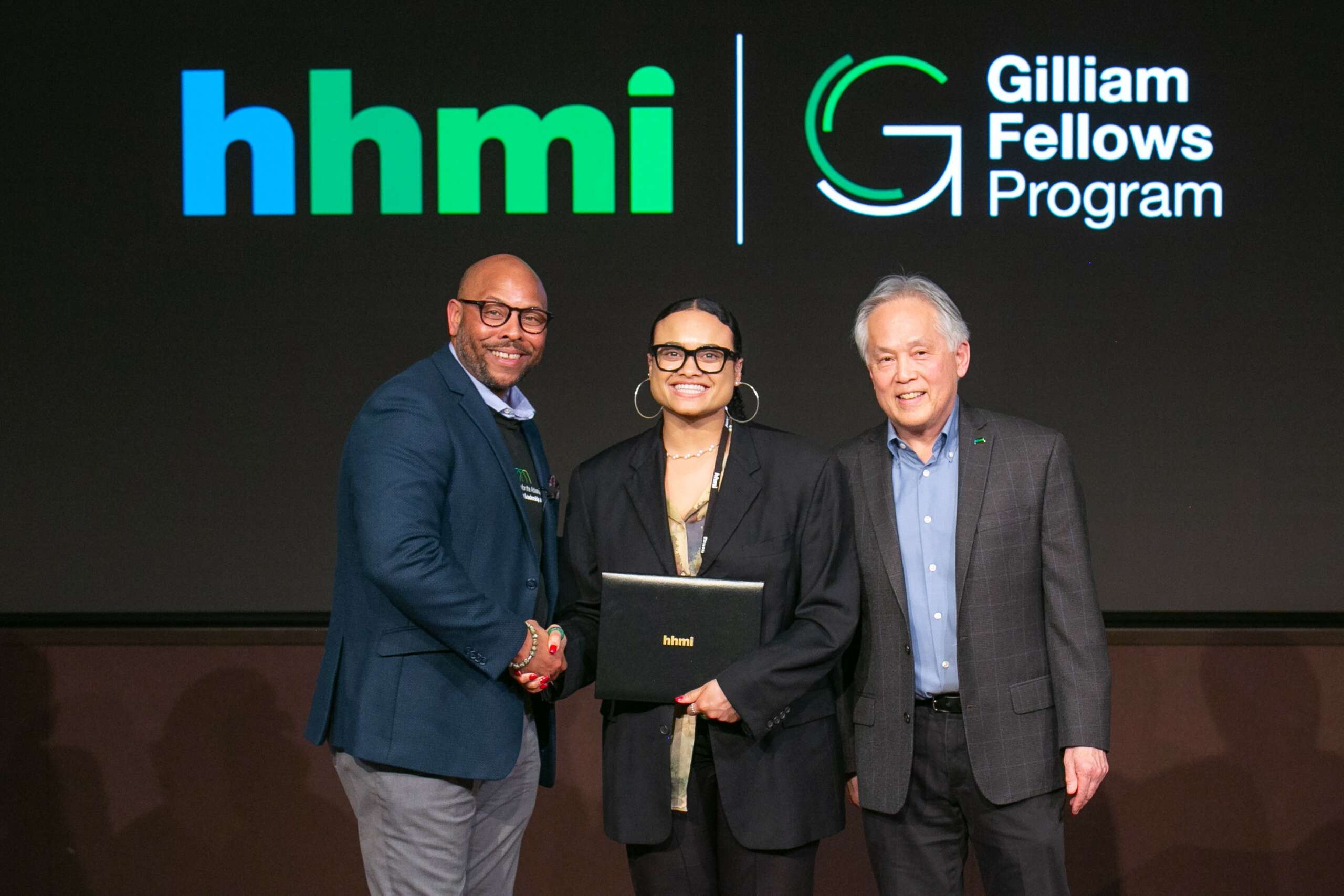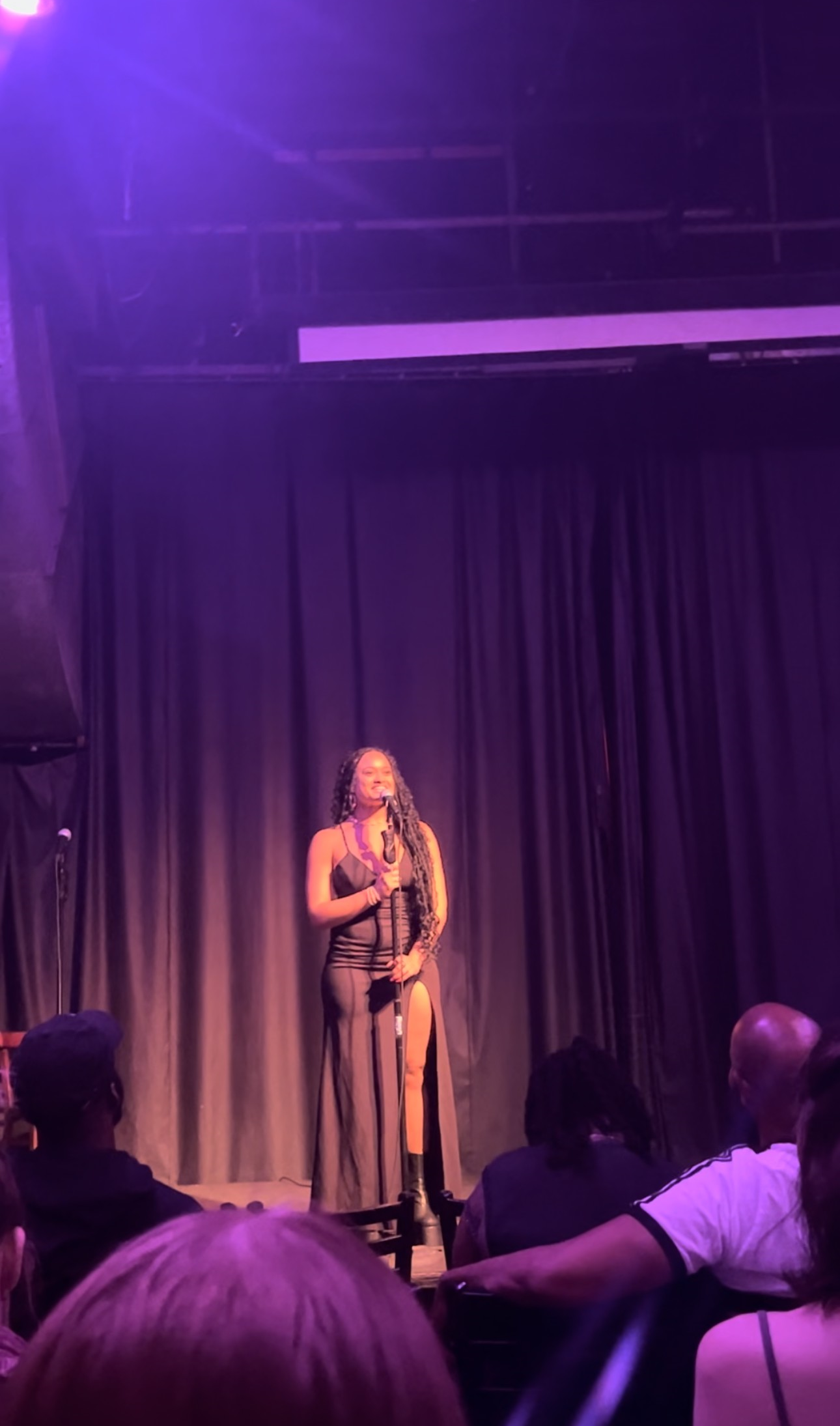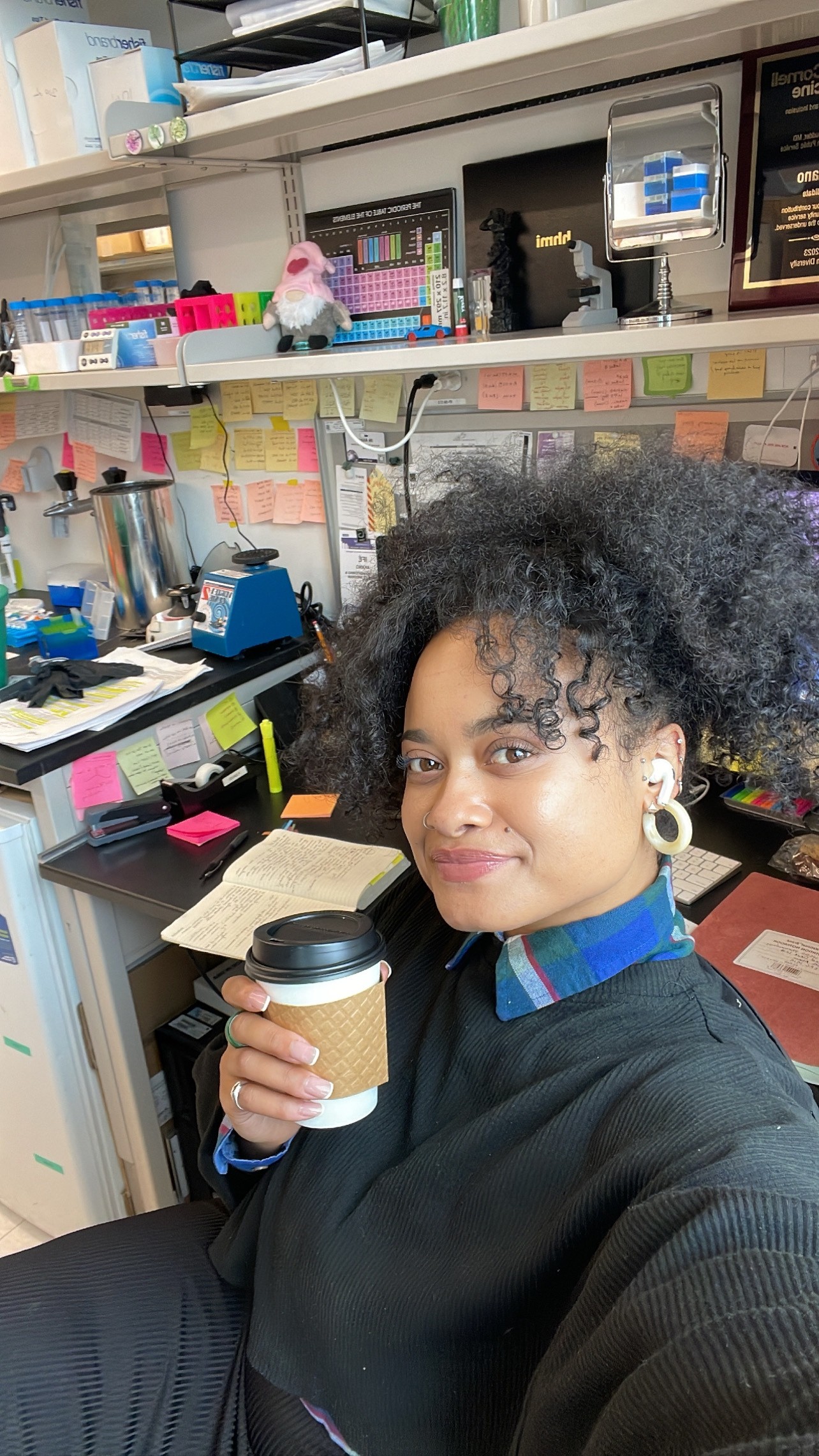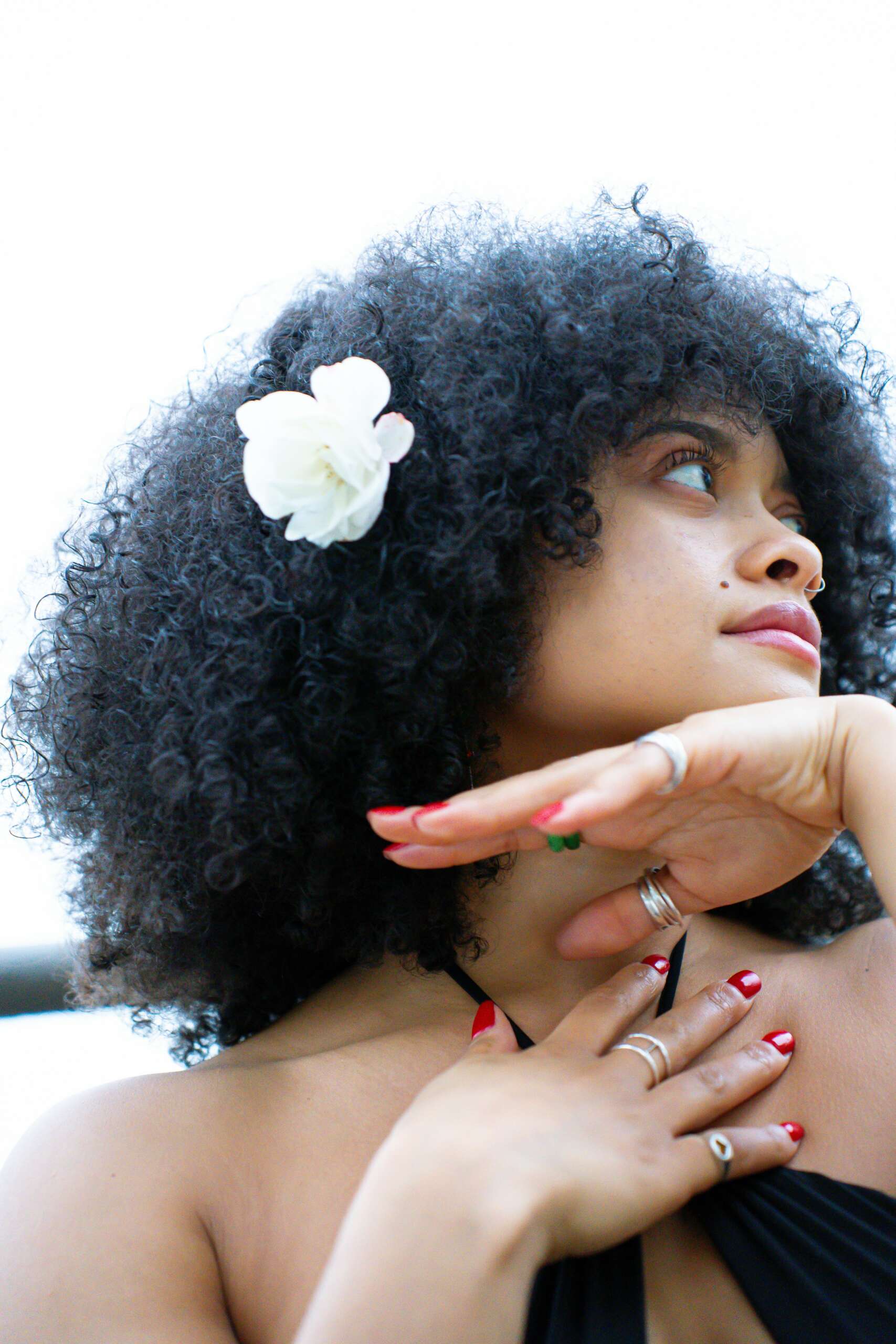We’re excited to introduce you to the always interesting and insightful Ifé Akano. We hope you’ll enjoy our conversation with Ifé below.
Ifé, thanks for joining us, excited to have you contributing your stories and insights. If you had a defining moment that you feel really changed the trajectory of your career, we’d love to hear the story and details.
I remember the moment when I first learned that a scientific career existed as an option for me. I always thought there were just doctors and pharmacists, and I hadn’t realized that it could be an entire career to perform scientific research until I met Sarah, a scientist working in drug discovery at Genentech (GNE). Connecting with Sarah absolutely changed my career trajectory, as she opened my eyes to the possibilities of being a scientist. I was inspired by Sarah’s journey of helping patients through her research, so I decided to pursue an internship at GNE. Something notable here is that I applied to several internships at GNE, and I was rejected from all of them. But through Sarah, I found out about a recruitment event at GNE, and through that event, my resume was internally provided to scientists that were hiring. I was working at Genentech when I realized that I want to go back to school to earn my PhD in pharmacology.
When it came time to apply to PhD programs, I only planned to apply to schools in California. I was born and raised in Los Angeles, and lived in California my entire life. Sarah really pushed me in this area, and she made some great points that going to grad school out of state would expand my network and get me out of my comfort zone to where I can learn more about myself and how the world works. I was reluctant to listen to her because I really didn’t want to be in the snow or the cold, but she finally convinced me to apply to some programs on the east coast. When I got an interview in NYC, I didn’t even want to go. I actually emailed them to retract my application, and then Sarah made me email them again. Funny enough, I fell in love with NYC when I visited for my interview. At the end of the application process, I applied to 11 schools, and I got two offers, one from USC, which is in LA, and the second was Weill Cornell, in NYC. It was scary for me to step out of my comfort zone, but with Sarah’s guidance, I accepted the offer at Weill Cornell. As I am wrapping up my thesis work and preparing to graduate five years later, I am so grateful that Sarah pushed me to step outside of my comfort zone to transform in ways that I never could have imagined.


Ifé, before we move on to more of these sorts of questions, can you take some time to bring our readers up to speed on you and what you do?
I am a scientist by day and poet by night, with lots of yoga in between. I can teach a group of students about cancer biology, I can perform a ten-minute spoken word piece, I can lead a guided meditation, or I could provide an advanced scientific seminar on my PhD thesis research.
What sets me apart from others is that I have the unique combination of a professional scientific background and creative passion for performing spoken word, while also holding a deep connection to spirit through yoga, meditation, and communing with nature. Although science and spirituality have some key differences, I believe that they are more similar than a lot of people might think.
My overarching goal is to increase accessibility. I strive to make science more accessible to people who don’t have a science background, as well as to make meditation and yoga more accessible to people who don’t have that foundation. In addition to increasing accessibility, my intention is to spread love, light and wellness through my work, whether it be an intellectual approach through my scientific research, or my creative/spiritual approach through spoken word.
My interest in science and passion for writing poetry both stem from my genuine curiosity to understand how the world works. I have been writing for as long as I can remember. I was writing poems in elementary school, and in grade school I started writing stories with intricate characters and plot lines. I never really thought much of it because it flowed through me so easily. The ideas, the words, the poems. When I got older, I became passionate about biology and incredibly inspired by the possibilities of scientific research. I realized that there is so much that we still don’t know about the human body, which is what led me to study biochemistry. My academic career through my undergrad in biochemistry, post-bacc at Genentech, and PhD naturally drew me away from my poetry.
It wasn’t until my third year of my PhD when I started to feel inspired to write poetry again. I started writing poems about love, and light, and joy, and pain. I started writing about the human experience, and I have become passionate about trying to find the words to describe such intense feelings. Last year, I started to feel a burning desire in me to start sharing my writing, and I eventually felt called to perform at my first open mic night last summer. At that moment, I fell in love with performing spoken word, and now I perform every chance I get.


Putting training and knowledge aside, what else do you think really matters in terms of succeeding in your field?
Community and connection are critical for succeeding in this field because it’s a very isolating career choice to be a scientist, and it’s a very lonely career choice to be a writer. I have found it essential to cultivate a supportive community of mentors, peers, mentees, friends, and family.
It’s very helpful to have a well-rounded mentorship network consisting of trustworthy mentors with different fields of expertise. I also appreciate having peers who I can confide in and connect with, as well as friends outside of my field so I can get away from it a bit as needed. I also really value giving back, it’s important for me to have mentees who seek guidance from me, and I learn a lot from them, as well.
My work productivity and quality of life increased drastically when I began to put more effort into checking in with people to ask how they’re doing, meeting up to get a coffee, and just spending time with people who have similar interests. It sounds cliché, but it’s actually made all the difference for me in my work.
What’s a lesson you had to unlearn and what’s the backstory?
Growing up, I was always praised for getting good grades and making high achievements, which naturally led me to strive for perfection and prioritize high achievements instead of prioritizing the effort it took to get there. I found that this approach negatively affected my work, as I became obsessed with doing things perfectly, and always making the right decisions. While I still love the feeling of having impeccable work, I’ve learned that it’s a lot healthier for me to romanticize the journey and reward myself for trying my best.
When I celebrate the effort instead of the achievement, I am acknowledging the fact that I am a flawed human being. With this reframing, I am less likely to put myself into an unrealistic box of how I think I “should” be, and I am more likely to try new things that might feel scary.
Contact Info:
- Instagram: @ifeakano / @blackfemmescientist
- Linkedin: linkedin.com/in/ife-akano
- Twitter: @IfeAkano
Image Credits
Memorial Sloan Kettering Cancer Center; Howard Hughes Medical Institute


